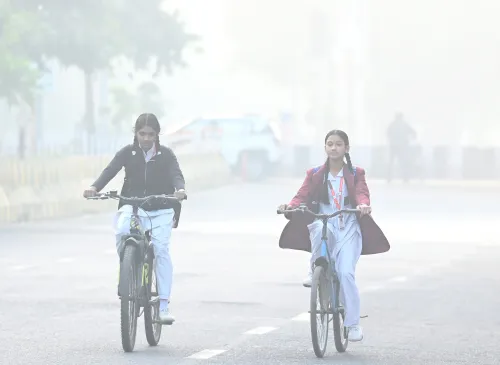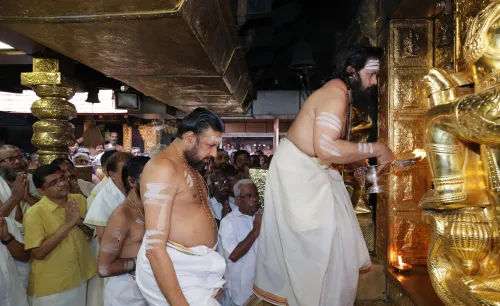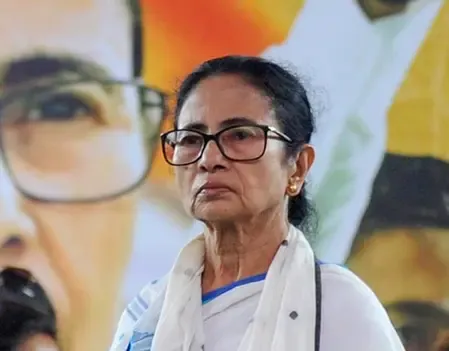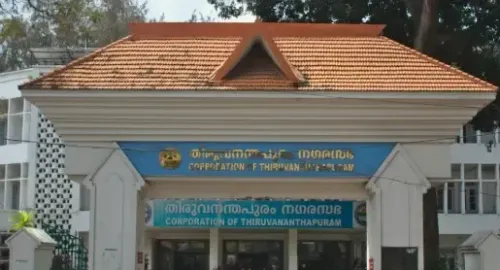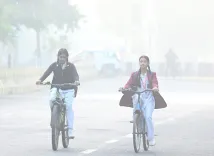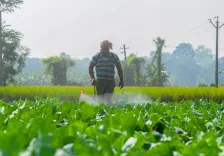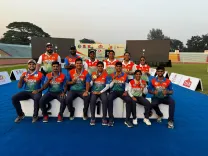Why Are Truckers Striking and Halting Coal Transport from Major CCL Mines in Jharkhand?
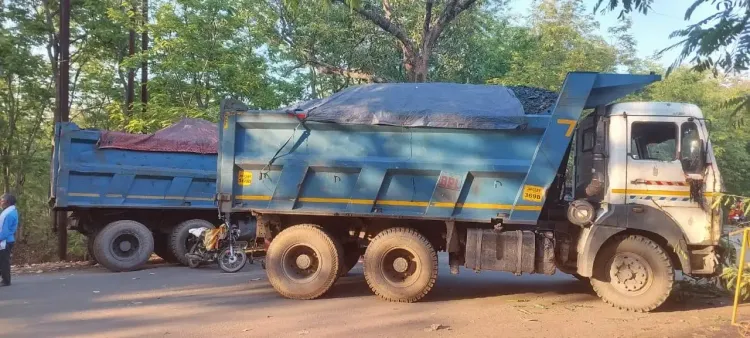
Synopsis
Key Takeaways
- The truckers' strike has halted coal movement for seven days.
- Allegations of police extortion are at the heart of the protest.
- NTPC thermal power plants may face fuel shortages soon.
- The truckers are planning to escalate their demands politically.
- The situation has sparked significant political criticism.
Chatra (Jharkhand), Nov 17 (NationPress) The road transport of coal from Central Coalfields Limited's (CCL) Amrapali and Chandragupta projects, located in Jharkhand's Chatra district, has been disrupted for seven consecutive days due to an ongoing, indefinite strike by truck operators. This strike, initiated on November 12, is a protest against alleged police extortion.
The ongoing strike has resulted in a complete halt to coal movement, significantly impacting daily revenue for CCL as well as the state government.
Authorities caution that if the situation remains unresolved, several thermal power plants operated by NTPC may soon experience severe fuel shortages.
Transporters claim that police stationed along the Tandwa-Simaria roadway, particularly in the Khadhaiya region, are demanding bribes ranging from Rs 5,000 to Rs 10,000 from each truck.
Truck owners report that officers from the Tandwa police station halt vehicles at night and impose unwarranted fines based on fabricated accusations, including issues such as faulty headlights, overheating engines, damaged tarpaulins, or malfunctioning speedometers.
Typically, CCL's Chatra belt transports around 60,000 tonnes of coal daily, with essential supply points including Chatti Bariatu mine in Keredari, Amrapali, Katkamsandi, KD Mines (Pandu), Tori, Dakra, RCR, and Magadh, collectively facilitating thousands of tonnes of coal movement daily.
With operations currently stalled, transporters assert that the disruption is overwhelming the entire supply chain.
On Sunday, the striking transporters convened at Chundru Dham ground in Keredari, where they reiterated their concerns and expressed anxiety about facing “harassment through unfounded fines and legal actions.”
They decided to escalate their demands by submitting a memorandum to the Chief Minister, requesting prompt intervention.
The situation has elicited political responses, with Jharkhand's Leader of the Opposition and BJP state president Babulal Marandi launching a fierce critique of the government.
He accused the police of extorting money, suggesting that a portion of these bribes ultimately “benefit those in positions of power,” asserting that the people in the state are suffering more from extortion by law enforcement than actual criminals.

